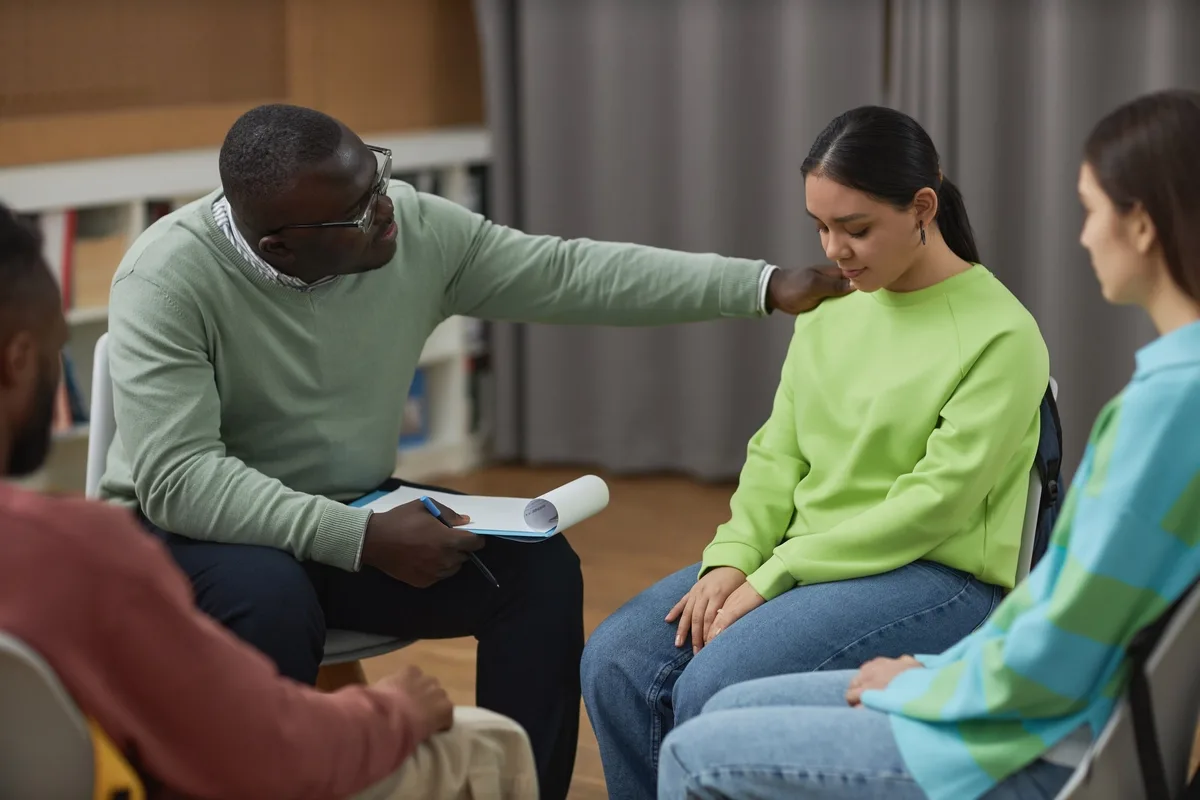24/7 Helpline:
(866) 899-221924/7 Helpline:
(866) 899-2219
Learn more about Group Therapy centers in Chiefland
Group Therapy in Other Cities

Other Insurance Options

American Behavioral

Covered California

CareFirst

Anthem

Health Net

Health Partners

State Farm

Horizon Healthcare Service

Coventry Health Care

Oxford

AllWell

Humana

Amerigroup

Kaiser Permanente

BlueShield

Providence

Magellan
Beacon

Cigna

Absolute Total Care




Mending Fences
Mending Fences is a private rehab located in Morriston, Florida. Mending Fences specializes in the t...

Transformations At Mending Fences
Transformations at Mending Fences is a residential mental health and substance abuse facility offeri...

Choice Recovery Counseling
Choice Recovery Counseling is an outpatient facility that offers treatment for adults with a Substan...

Northwest Human Service Center
Northwest Human Service Center is a public rehab located in Williston, North Dakota. Northwest Human...

ADAPT – Airport Road
ADAPT - Airport Road offers outpatient treatment for individuals with alcohol and/or substance addic...































Meridian Behavioral Health
Meridian Behavioral Health - Ishie Avenue offers outpatient treatment for individuals with alcohol a...

Intensive Treatment Modalities Group
Intensive Treatment Modalities Group hast provided mental health treatment and care for adult and ad...

Intensive Treatment Modalities Group
Intensive Treatment Modalities Group hast provided mental health treatment and care for adult and ad...

Basin Alcohol and Drug Services
Basin Alcohol and Drug Services is a private rehab located in Williston, North Dakota. Basin Alcohol...

Weishoff Alcohol and Drug
Located in Williston, North Dakota, Weishoff Alcohol and Drug is a drug and alcohol rehab for adults...

Montgomery Counseling Service
Montgomery Counseling Service is a private rehab located in Williston, North Dakota. Montgomery Coun...

ADAPT
ADAPT is a private rehab located in Williston, North Dakota. ADAPT specializes in the treatment of a...

Family Recovery Home Quantum Lachoer Center for Change
Family Recovery Home Quantum Lachoer Center for Change is a private rehab located in Williston, Nort...

AA – Alcoholics Anonymous – 6th Avenue East
AA – Alcoholics Anonymous – 6th Avenue East is a non-profit rehab located in Williston, North Dakota...







































































